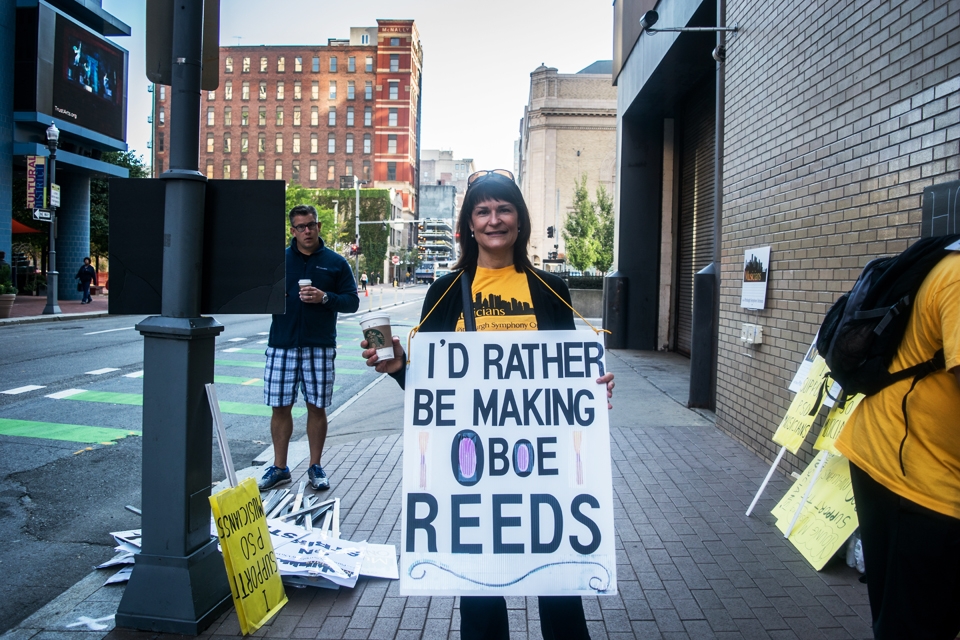

Several Pittsburgh Symphony Orchestra musicians have taken to performing free concerts around the city during the strike, which started on Sept. 30.
By Zachary Landau | Staff Writer
On Sept. 30, members of the Pittsburgh Symphony Orchestra went on strike to protest what they believe to be unreasonable reductions in pay and benefits from their management. This is after months of discussion and a failure to agree on a new contract.
The proposed deal would cut musician salaries by 15 percent, placing their annual salary at roughly $91,000, and eliminate their pension.
While the pay cut is a sour point among the musicians, it is not the prime reason they decided to launch the strike.
“The hierarchy of an orchestra is based on its base salary,” principal oboist Cynthia Koledo DeAlmeida said. “When this 15 percent pay cut brings the base salary below not even the top 20 in America … we will lose, and we already are losing, musicians.
“In just this last week we’re losing three of our top musicians to other orchestras, and that will keep happening,” DeAlmeida continued.
As for management, they are concerned about potential fiscal problems in the coming years.
“When new leadership stepped in at the Pittsburgh Symphony, we undertook a diagnostic situation assessment that caused us to realize that we are facing an imminent financial crisis,” Board Chair Devin McGranahan said in a post published to the PSO’s official blog.
The Pittsburgh Symphony estimates that it will acquire a $20.4 million deficit through 2021, according to the same post.
However, musicians are adamant that these numbers are wildly exaggerated.
“Management keeps throwing around these large numbers,” bassist Micah Howard said. “The problem with these numbers is that these are not real numbers. These are based on forecasts that they’ve made, and they’ve used the most pessimistic assumptions for their forecasts.”
“They’re bogus numbers that they’re using to justify imposing these cuts on us,” Howard said.
Charles Stegeman, professor of violin and concertmaster for the Pittsburgh Opera and Ballet, speculates that these financial woes are more likely due to “administrative bloat.”
“Pittsburgh Symphony is 99 players, and the staff is purported, and I’ve heard numbers anywhere between 80 and 60 people. [They] probably don’t need that many, and so management ought to look at itself. They’re not suggesting any cuts, by the way, while there is a strike, [and] they’re still getting paid.”
Duquesne has had a long-standing relationship with the PSO. Many professors have worked or currently work for the organization and, as such, have been paying close attention to the strike and how their students are reacting.
Professor Rachel Stegeman, who is also a substitute violinist for the PSO, has been using the strike to address what it is like to work as a musician with her students.
“Just teaching them about what it is, what it means, management, and you don’t want to be adversarial with your management, but it seems management is adversarial with musicians,” Stegeman said. “Are musicians not supposed to fight for their jobs? Are they not supposed to have a say in it? Are they supposed to say, ‘Yeah we’ll take a 25 percent pay cut?’ No other job would do that.”
As far as the strike is concerned, many musicians hope to be performing again soon.
“We want to get back to playing our concerts as soon as possible,” Howard explained, “but in order to do that, we have to be able to get back to the table and get back to negotiations with our management.”




